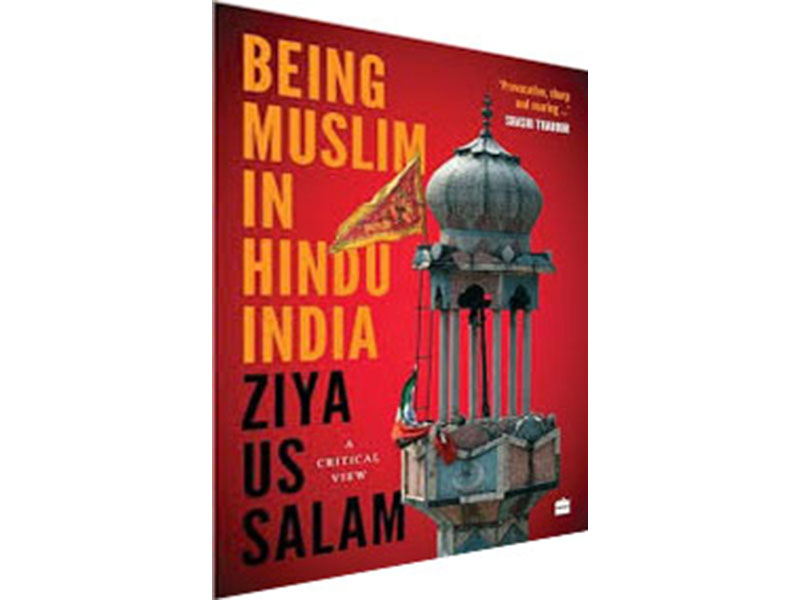Being Muslim in Hindu India: A Critical View Zia Us Salam Harper Collins India Rs. 599 Pages 310 Starting with the sentence ‘To be a Muslim is to be an orphan’, several polemical essays are peppered with contentions and arguments backed by hard data The very first sentence of the ‘Preface’ in the book under review is crafted to grab readers by the scruff of their necks —“To be a Muslim is to be an orphan”— and then keep them glued to each page. These polemical essays are furiously peppered with contentions, declamations and arguments, backed up by data that’s hard to ignore. For instance, the piece titled ‘Reconstituting Constituencies’ in the opening segment refers to the Sachar Committee’s observation that Muslims lag behind all communities including the schedule castes on parameters of political representation, education, employment, health, etc. The glaring contradiction therefore of reserving seats for candidates from schedule caste communities in areas with a high percentage of Muslim population is curious, to say the least. Salam argues that such systematic reservation of seats for other communities in areas where Muslim candidates would have a realistic chance of winning has translated into minuscule representation for the community in elected bodies. The issue may be remedied by a Delimitation Commission recommended by the Sachar Committee, and ensure a representative number of Muslims get elected to all democratic institutions. Nonetheless, the author notes, it is revealing that the issue has not been addressed by political leaders when in office. A few more examples may help get a sense of the fears and faults around discrimination discussed in this book. Lynching the “Other”’ is a dark and relentless indictment of hate crimes that have targeted Muslims: a lynching in Dadri, a beheading in Rajsamand, an attack in Delhi, another in Pune. These were all ordinary Indians — a man in his house, a labourer looking for work, a hawker on a street, an IT professional — who were attacked and killed in acts of cruelty beyond belief. Salam records the accompanying celebration of the perpetrators as brave heroes and role models, in one case being draped by the national tricolour in violation of the Flag Code of India, 2002, with dismay. ‘The Politics of Love Jihad and ghar wapasi’ in Section III, traces the energy and fantasy expended on a conspiracy theory of Muslim men tricking gullible Hindu women into falling in love with them. Simultaneously, there’s the belief that converting Muslims back to Hinduism — the claim being that they were all Hindus “at one time” and hence must be returned home or ghar wapasi — is equated with ‘restoring’ masculinity and increasing the numerical strength of the majority community. The words of legislators, public figures and firebrand leaders, Salam contends, invoke male ‘prowess’ on the one hand and licentious behaviour on the other — all built around the idea of a woman as a ‘baby-producing machine’ with no control over her mind or body. In an interesting essay ‘Shaheen Bagh…
Minority angst
